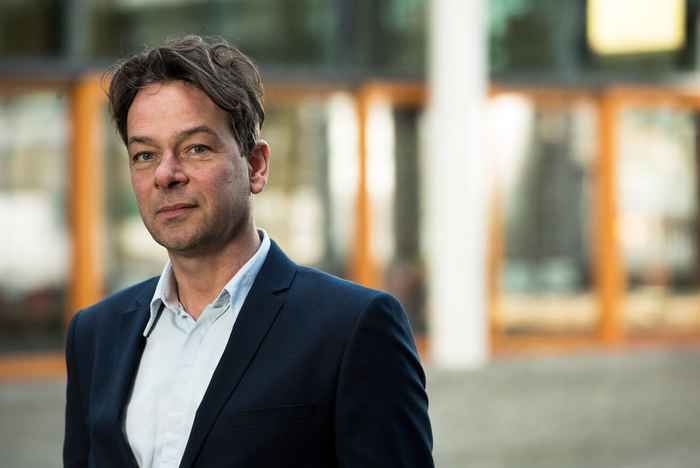Daniel Bonn receives second ERC Advanced Grant for research into sprays
19 June 2024

It is the second time that Bonn has received an ERC Advanced Grant; he previously received the subsidy in 2019.
Sprays have a wide range of applications, from cleaning to agriculture and medical treatments. Spray technologies are crucial for many industrial processes, but many current sprays lack sufficient control over parameters such as droplet size distribution, which is essential for reaching the target. As trial-and-error methods reach their limits, a breakthrough is needed for perfectly monodisperse sprays.
Daniel Bonn has previously shown that insights into the physics of sprays can lead to improved spraying methods. For agricultural sprays, he has developed a detailed understanding of the processes underlying spray formation, enabling a better description of droplet size distribution. These insights could lead to a new generation of nozzles with highly controlled droplet size distribution. Bonn will combine breakthroughs in hydrodynamics to 'tame' the instabilities responsible for spray formation and develop new nanofabrication methods for nozzles. He will test these breakthroughs in precision medicine and agriculture, important fields of spray application.
ERC Advanced Grant
ERC Advanced Grants support researchers at the stage of their career where they are already established research leaders with a recognized track record of research achievements. Candidates must demonstrate the groundbreaking character, ambition and feasibility of their research proposal. The projects must be carried out at an institute in the EU or one of the associated countries.